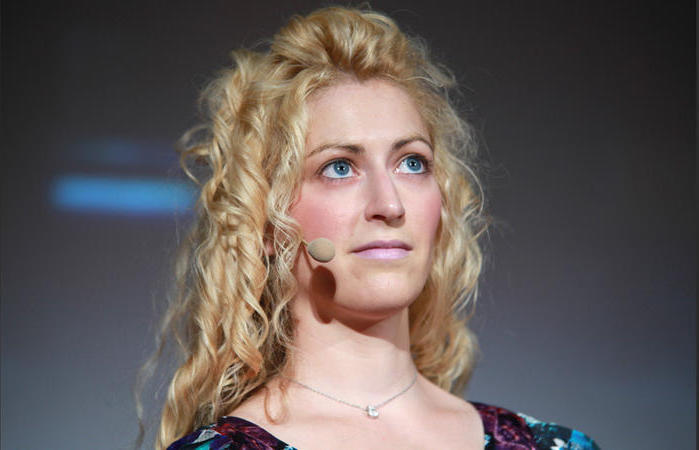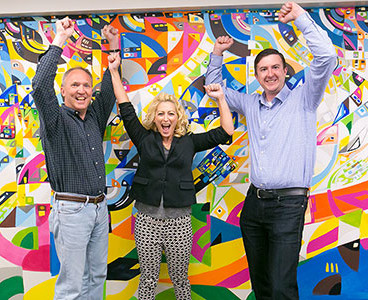SuperBetter app returns to help users meet life’s challenges

SuperBetter CEO Keith Wakeman uses an app to manage his stress while running a startup.
The same app, he says, could inspire regular exercise and healthy diet and even help reduce symptoms of conditions such as depression and anxiety.
The company re-launched the app in September after acquiring it from the original makers in February. The original makers included Jane McGonigal, SuperBetter’s chief science officer, whose experience inspired the app.
Now the company is riding the wave of an eponymous New York Times best-selling book by McGonigal, a game designer and researcher whose 2012 Ted talk on SuperBetter received more than 5 million views.
Now, Wakeman has a team of five employees and runs the company in Chicago from the Matter healthtech incubator. He’s working to widen the user base with a $150,000 Indiegogo campaign that launched last week and a not-yet-closed round of angel funding. By Friday afternoon, the campaign had raised about $6,200, with 43 days to go.
The app lets users choose a challenge such as alleviating chronic pain or lowering stress, battle “bad guys” like the elevator — instead of the good-guy stairs option — and accept “power-ups” like walking around the block. Users work toward achieving an “epic win” of their choice.
SuperBetter 2.0
The app, which the company says has nearly half a million users, mirrors McGonigal’s own recovery process after she received a traumatic brain injury in 2009. After the concussion, she struggled with prolonged vertigo, constant headaches and reading and writing, she detailed in an event in late September at the 1871 tech hub.
“I just started inventing this role-playing game on the fly,” McGonigal said at the event. “I was totally concussed so I wasn’t at my computer coding … I’m writing down rules, I’m making video … it was really simple.”
Her game involved assuming a secret identity, taking on quests and trying to become “SuperBetter.” She began, to put it simply, “gamifying” her life — giving herself incremental challenges like getting out of bed or showering to speed her recovery.
“I can’t say how much it helped me to go from a state of being extremely depressed and anxious and feeling like there wasn’t one single thing I could do to get better … to feel like my friends and family had a better idea of what was going on in my life,” McGonigal said at 1871. “The depression and anxiety went away almost immediately [after starting the game]. The cognitive symptoms lasted more than a year, but I never felt depressed and anxious that way again.”
McGonigal gathered a team to transform the process into an app. But in 2013, the original company stopped operating, and the app remained dormant until Wakeman and his new company acquired it from McGonigal’s original team this year.

The “epic wins” vary widely. “It’s not always just about labeling depression or anxiety; it’s anxiety or depression causing me not to be able to do things,” Wakeman said. “A young millennial tweeted, ‘I’m using SuperBetter to go through the process of getting my driver’s permit,’” while another labeled her “epic win” as finding a kidney donor.
The app has been tested in clinical trials at the University of Pennsylvania and the Ohio State University.
The University of Pennsylvania study concluded: “These large effect sizes should be interpreted cautiously in light of high attrition rates and the motivated, self-selected sample. Nonetheless, smartphone-based/Internet-based self-help may play an important role in treating depression.”
Wakeman plans to begin monetizing the app in early 2016 with in-app subscriptions but also wants to forge contracts with partners such as health plans and employers.
“We’re all about engagement, and the healthcare industry is dying for engagement solutions,” he said.

